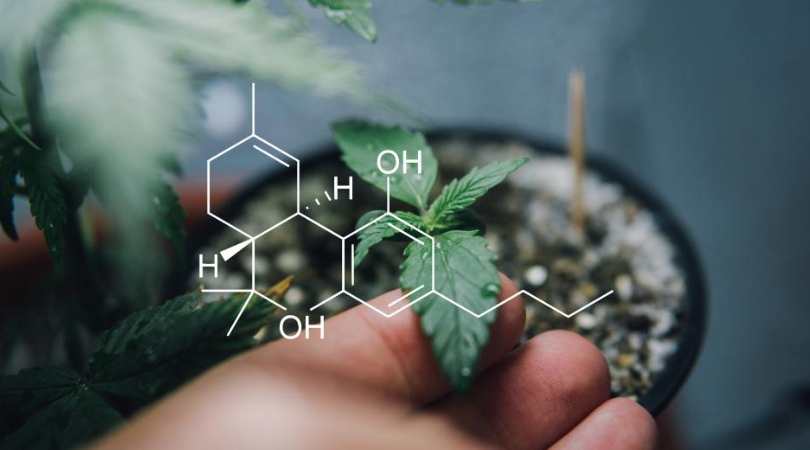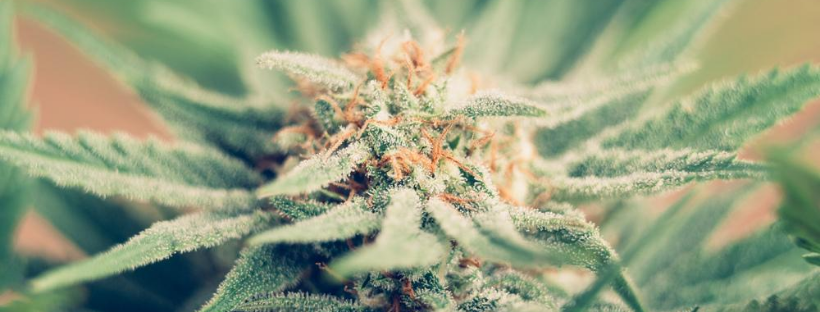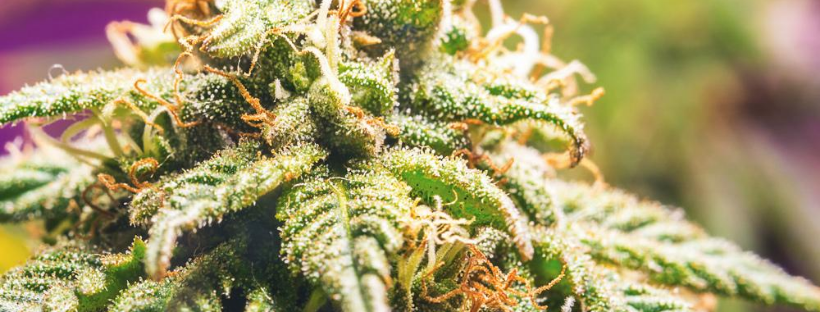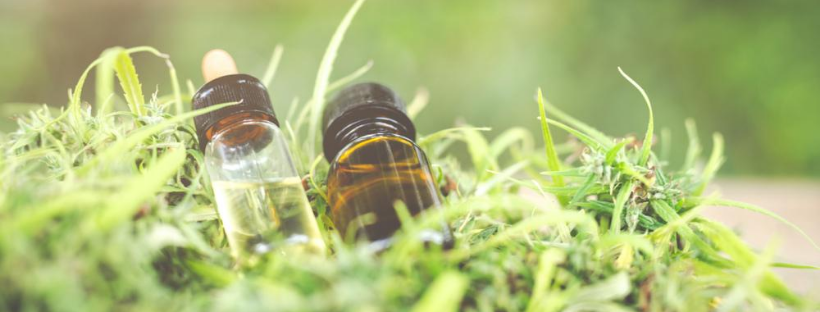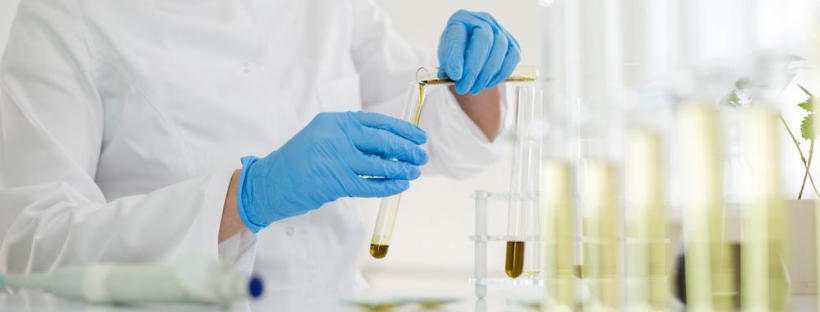In the past, people who liked cannabis had a hard time with it. However, today, it is legal in more areas than ever before. People are using it for positive reasons, such as medicinal users. For example, those who are going through chemotherapy often choose to use it. There is an increasing amount of research showing it has other potential uses.
Cannabinoids and CBD
There are only small amounts of THC in the CBD cannabinoid. THC is what makes you high, but CBD products have many cannabinoids in them. Both your brain and cannabis produce these components, which were discovered in the early 1990s. Rats and many other species also naturally produce cannabinoids. Even if you have never had a cannabis product before, your body still has some cannabinoids that are vital when it comes to maintaining your well-being and your health. The most famous one of these is THC, but not every cannabinoid is psychoactive. In fact, THC is one of the very few that are psychoactive.
How Do Cannabinoids Affect Your Body?
The research on CBD is still growing, and researchers are frequently something new about this cannabinoid. The full advantages of using cannabinoids have not yet been decided. However, there is quite a bit of research that suggests that CBD may have potential medical advantages. The research is not yet conclusive, but many people still choose to use cannabis to try to help a variety of different ailments, such as:
- Insomnia
- Arthritis
- Stress
- Chronic Pain
- Anxiety
- Joint Injuries
- Cancer
- Symptoms Brought on by Chemotherapy
- Seizures
Because there is a relation between your body’s inflammation points and cannabinoids, this suggests that CBD may be helpful for a very wide range of conditions. With its anti-inflammatory and potent qualities, some of the research is focusing on CBD as a potential aid for chronic pain or joint issues. Some people choose to take CBD to help with treating epilepsy in addition to their prescription medications.
Many medical users believe that using CBD may help relieve their anxiety, and there are many studies that show that this idea might be credible. For example, some studies have suggested that CBD could relieve the flight response of rats by interacting with their serotonin receptors. That could potentially help reduce their feelings of anxiety and fear, as well as their stress.
One study looked at how a 600-milligram dosage of CBD affected people who had generalized social anxiety disorder. Those who took CBD found that it was easier for them to do public speaking. They were also more relaxed, and they spoke better during a public speaking test.
Cancer and Cannabis
Many people who are undergoing chemotherapy choose to use cannabis. Many countries will still allow chemo patients to use medical marijuana even if cannabis is not legal for recreational use there.
Cannabis and Pets
It can be heartbreaking to watch your beloved pet deal with a health condition, such as a seizure disorder. This is why some people choose to get pet CBD products to try to help their pets.
How Do Cannabinoids Work?
Your endocannabinoid system affects how cannabinoids can affect your body. Because of marijuana-related laws in many areas, the research into how it works has been stifled. However, there are still many facts that the researchers do know about this system in your brain. For example, your brain produces two kinds of cannabinoids normally. These are endocannabinoids, or endogenous cannabinoids.
Even if you never use cannabis, the brain needs your body’s endocannabinoids to regulate the different functions of your body. That includes your fertility, memory, and appetite. It can even affect your mood. The cannabinoids work in your body’s brain because they can transfer messages across the ECS system and bind to your body’s cannabinoid receptors.
This tells the system to respond, and it is not entirely known which actions this will trigger. However, it has been linked to liver function, inflammation, and pain management. Some researchers believe that this system is designed to maintain your body’s homeostasis, or sense of equilibrium. The reason they believe this is because the function of the endocannabinoid system is so broad.
Homeostasis means that your body’s internal environment is in an optimal, stable state. That would mean that when your body had an illness, fever, pain, or another ailment, then the ECS would start working to help your body get back to normal quickly.
If your body does not produce enough cannabinoids or you want to try to give your ECS a natural boost, the cannabinoids from the cannabis plant may help to fill in the gaps. Because so many parts of your body are impacted by the ECS, cannabinoids have a huge potential for many different illnesses.
What Are the Different Kinds of Cannabinoids?
There are more than 100 known cannabinoids, and there are most likely many more that are undiscovered. Despite the amount of research into endocannabinoids, there is still more for researchers to learn about them.
You can find many phytocannabinoids in sativa strains. However, research has shown that many foods that are considered healthy have cannabinoids in them, as well. For example, cloves, broccoli, ginseng, carrots, and black pepper also have cannabinoids in them.
Phytocannabinoids
The phytocannabinoids are cannabinoids that plants synthesize. The researchers have found at least 113 kinds of phytocannabinoids. CBD and THC are the two most famous ones, and other prominent ones are CBG, CBC, and CBN.
Endocannabinoids
There might be more that are not yet discovered, but there are two endocannabinoids that your brain can produce that are currently known. Anandamide can give you a reward response, and 2-AG can interact with the receptors in your ECS system.
Known Cannabinoids
Out of the many cannabinoids out there, there are seven very important ones for any marijuana user to know about. Two of these are endocannabinoids, and the rest of them are phytocannabinoids.
Tetrahydrocannabinol (THC)
THC is the main component that you can find in cannabis, although there is not much of it in the hemp plant. Although marijuana and hemp are both cannabis strains, hemp growers have bred the strains to have small amounts of THC and often higher levels of CBD. Often, there may only be around 0.1 percent of THC in the hemp plant. On the other hand, in a marijuana plant, you might have 40 percent or more of THC.
Cannabinol (CBN)
CBD is not made by the cannabis plant under the best of circumstances. If you have any CBN in your plant, then it means that the THC had transformed to CBN because of too much heat or light. CBN is only mildly psychoactive, and you can usually only find this cannabinoid in aged plants. This is why if you have some good bud, you should store it away from light, even if it is not direct sunlight. It should also be kept at room temperature. Placing it in a dark glass jar will ensure that light and air stay away from your cannabis.
Cannabidiol (CBD)
This is one of the most famous cannabinoids out there, and this is what is often used to market products from the cannabis plant. In some areas where cannabis with THC is illegal, people use CBD.
Cannabichromene (CBC)
This is a highly concentrated cannabinoid. However, because it is a minor cannabinoid, it is often harder to find it in larger amounts as you can with THC and CBD. Often, only the tropical strains of marijuana have very much CBC in them.
Some researchers believe that it may also help with pain relief, even though it is not as strong as THC can be. It may contribute to the potentially pain-relieving qualities of the cannabis plant. It can interact with the targets that control your pain. Since it is not psychoactive, some researchers hope it will be used for relieving pain in the future.
Others believe that it may help to fight depression and help boost your mood. However, it may not activate the pathways in your brain that THC does. Some researchers believe that it may stimulate the growth of your brain, which is known as neurogenesis.
Finally, some researchers believe that it may help to prevent cancerous tumours from growing. That might be because it interacts with anandamide and affects your CB1 receptors. Since it inhibits anandamide from being absorbed too fast, it can stay in your bloodstream longer.
Cannabigerol (CBG)
CBG is a progenitor of the other cannabinoids in the plant. Cannabis will produce CBG initially and then, through the biological processes, it will be converted into other substances. Sometimes, growers will harvest young cannabis plants so that they can extract and then experiment with the CBG. Since CBG will become other substances, older plants will not have as much of this cannabinoid in them.
Your Body’s Endocannabinoids
2-Arachidonoylglycerol (2-AG) is one of the known endocannabinoids. It might play a role in activating your ECS when your body needs to go back to homeostasis. Anandamide is similar to THC. It can impact your emotional state, and it is suspected that it can help your brain to reward your body for pleasurable activities, such as eating or getting physical exercise.
About Synthetic Cannabinoids
As CBD and other cannabis products become more popular, companies are trying to create synthetic cannabinoids. When it comes to quality, you may be able to find synthetic cannabinoids in the future, but not today. Synthetic cannabinoids may come with negative effects and health risks. For instance, when you stop taking them, you may suffer from withdrawal symptoms. That might include fatigue and headaches. Using real cannabis is unlikely to produce this effect.
Companies make synthetic cannabinoids in the lab and ensure that they work by binding to the neuroreceptors that THC and CBD does. That can help them to produce similar effects that THC and CBD do. That might include relaxation. However, they can also cause life-threatening or uncomfortable symptoms, especially if you do not purchase them from a reliable company.
There is research that suggests that synthetic cannabinoids might affect your brain more so than natural cannabis does, and the effects of synthetic cannabinoids can be unpredictable. This is why they can produce potentially life-threatening effects, like anxiety, nausea, heart palpitations, brain swelling, and seizures. They can also cause chest pain.
Unfortunately, many people die each year because of using artificial marijuana products that have synthetic cannabinoids in them. This is why you should stick to using real marijuana products. If you see a synthetic product, you should stay clear of it.
To purchase safe products, you should make sure that you are purchasing from a reputable supplier. It should have third-party testing and allow you to see the results. That way, you can make sure that you are getting all of the product that you are paying for.
What Is the Entourage Effect?
In theory, the entourage effect means that when combined with each other, cannabinoids can have a stronger effect than if you were to use them one by one. The experts believe in the entourage effect and choose the cannabinoid ratios in certain strains carefully to create a one-of-a-kind experience.
It is still unclear what science involves, but the researchers are getting a better idea. CBD may mitigate the effects of THC, but only when you are using enough THC to get high. If you choose a strain that has a higher level of CBD than THC, then you may have only mildly psychoactive effects. It is also because of the entourage effect that patients with certain health conditions choose various strains. For example, some strains might put you to sleep while others make you feel ready to go socialize.
Closing Thoughts
The researchers are constantly coming up with new ways that cannabinoids may benefit your body. There may be new breakthroughs in the future, so it is a good idea to keep an eye on future research.

